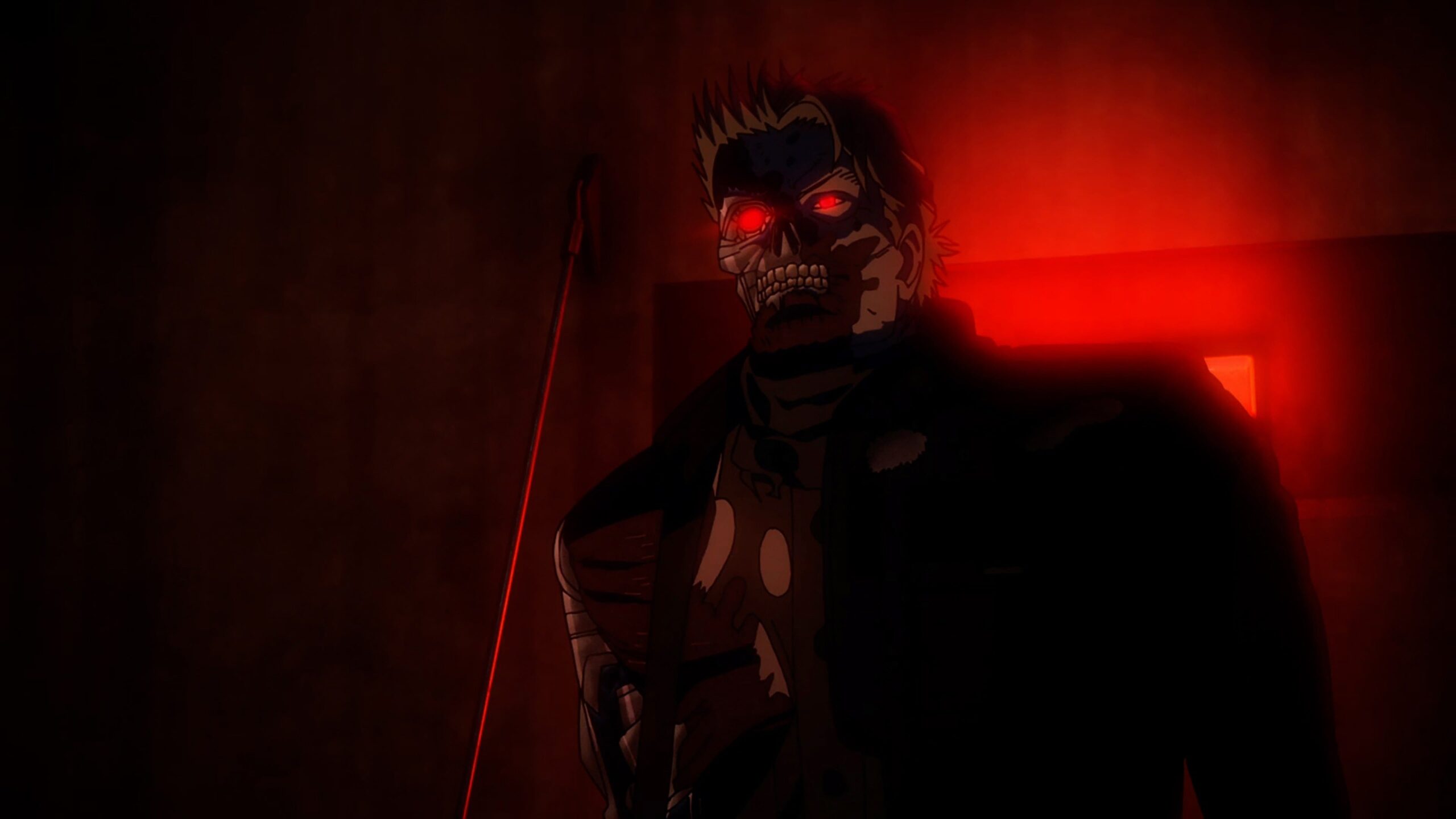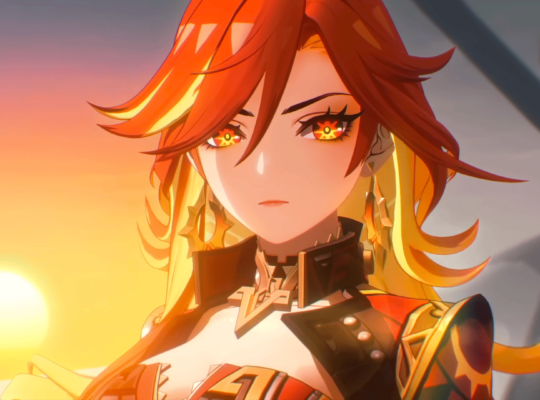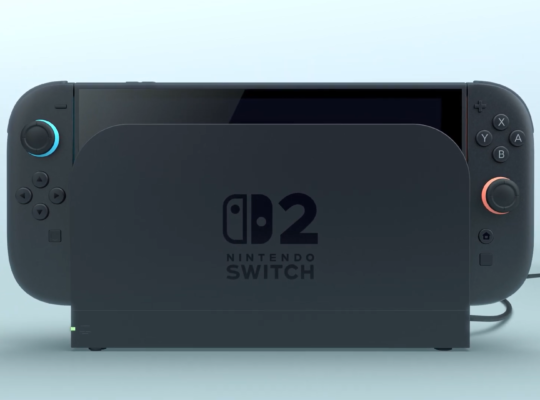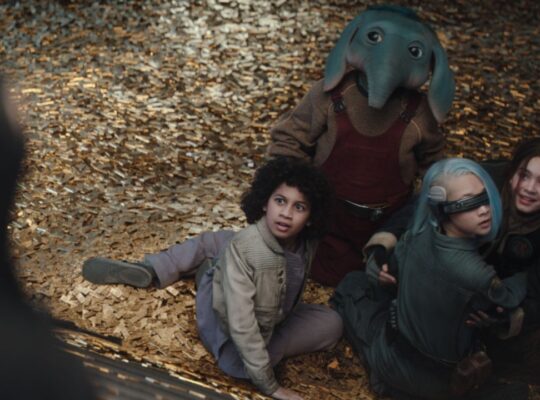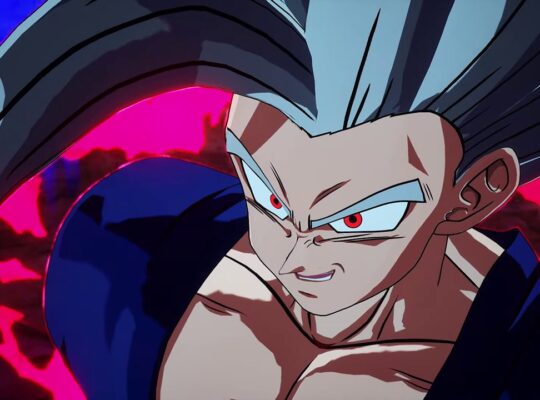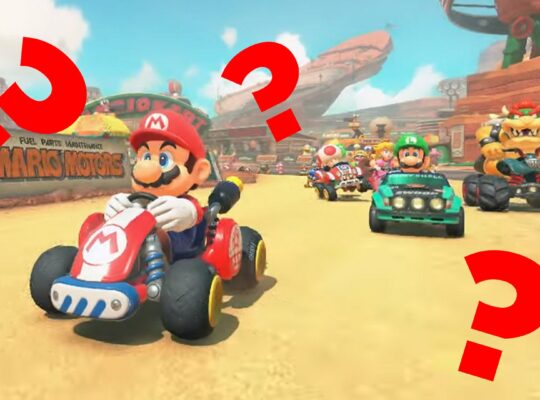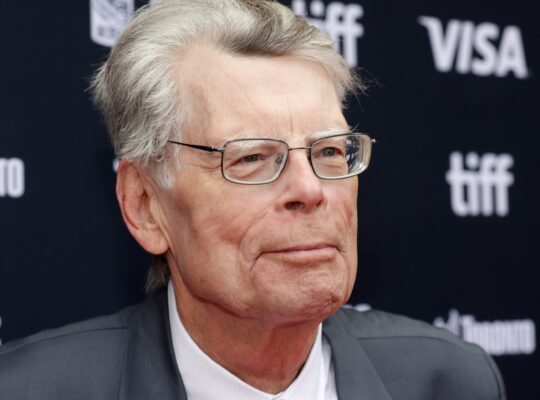Judgment Day is rapidly approaching, but instead of a nuclear apocalypse, fans of the Terminator movies have a much cheerier surprise in store: the anticipated release of Terminator Zero, the first-ever animated iteration of the beloved sci-fi franchise.
Leading up to the show’s Netflix debut on Aug. 29, showrunner Mattson Tomlin sat down with us to dive behind the scenes of the project, from his casting thought process to how he balanced fans’ hopes for the series with his own desire to make the show unique from its source material.
Terminator Zero remains rooted in the pre-existing world established by other Terminator films but with a few caveats: for starters, the anime series is set in Tokyo and centers around an entirely new cast of characters. Tomlin’s reimagining of the franchise follows Japanese scientist Malcolm Lee and his three children, who find themselves targeted by a robot assassin after Lee develops a new AI system named Kokoro to compete with Skynet.
Recent weeks leading up to the series’ release were especially tumultuous after a major Netflix security breach caused all eight episodes of Terminator Zero to be leaked online along with other upcoming animes like Dandadan and Ranma 1/2. Dodge the spoilers, if you can, and make sure to report accounts spreading leaked information — believe us, this action-packed series deserves to be watched in high resolution, as its animators originally intended.
Read on for our full interview with Tomlin, and be sure to also check out our thoughts on the latest Terminator Zero trailer.
IGN: So the biggest thing that’s on my mind while watching this series is, we see Timothy Olyphant taking on this titular character, Terminator, which is figuratively and literally massive shoes to fill. What was kind of the turning point for you of, “This is the right person for this role. I know that he’s going to be the next Terminator”?
Mattson Tomlin: Yeah, it’s funny. It is big shoes to fill, and I think that part of it is that when you have iconic characters like that, you always have to go, “Is this something where I am trying to replicate and imitate what has been done before? Do I want to go on a whole new path? What do audiences expect? What do they not expect?” And I think that for me, it just came down to knowing that we weren’t going to be doing the Arnold Schwarzenegger iteration of Terminator. It just felt like, “Okay, we’ve got to find our own way here.” And so for me, I just wanted to have an actor who was willing to play, because it is a really daunting thing to do.
It just came down to knowing that we weren’t going to be doing the Arnold Schwarzenegger iteration of Terminator… like, ‘Okay we’ve got to find our own way here.’
Tim and I knew each other a little bit. We’d almost worked together on a couple of things that didn’t come through. And so he was one of those people that I’m like, “Man, I wish we could find something, I wish we could find something.” And then he just popped into my head one day. I was really spiraling about, “Who is this going to be? What is this going to be? Do we get the contemporary big guy?” … But there was something about him where I was just like, “You know what, I know him and I know he’s a tremendous actor.” I’m a huge, huge fan of his. And it just felt like he’ll come in there and play.
That must feel really fulfilling to finally get to work with him on a project of this scale, right?
MT: Yeah, I checked the box.
And you kind of started to hit on this — that this series is based off of this world that already exists, but it is still its own thing. And I’m curious about how important it was for you to feel like you’re sticking to the canon of the original movies versus putting your own spin on it?
MT: Yeah. You know, for me, there’s always — any time that I’m walking into the world of something that I haven’t created — there is this math that you have to do, of, “Okay, what do people expect and then what do they want? And then what do they not know that they want?” … Terminator is 40 years old at this point, so people know what it is. I talked to a lot of people who were like, “Oh, that’s the movie that I grew up watching with my mom or my dad,” or whatever.
It has a primal connection for a lot of people. And so they care about it, they really care about it … I don’t recommend you do what I did, [but] if you get on Reddit for four seconds, you very quickly go, “Okay, there’s a lot of things they don’t want. And then there’s a lot of things that they do, and then there’s kind of this in-between area.” And so for me, it’s going on a journey of [asking], “Why does this need to exist in 2024? What is it that I have to say that is real, that is emotional?”
For me, once I find something emotional and something where [I go], “Oh, I can use this as the vessel to tell an emotional story that really means something to me,” then it’s just a matter of going, “Okay, what do people expect?” Well, they expect Terminators. I think that they expect a level of time travel. They expect, whether or not they would articulate it this way, a story about families. The first movie is a love story between a man and a woman, and the second one is a mother-son story. And so I think it’s about sticking to those tenets and then going, “Okay, now I’ve got to just try not to make everybody mad.”
If you get on Reddit for four seconds, you very quickly go, ‘Okay, there’s a lot of things [fans] don’t want. And there’s a lot of things that they do.’
Is that normal for you in your work, to look at what other people are saying to base your own creative ideas off of in terms of what they don’t want and what they do want? I know you’re working on other massive pieces of IP at the same time, like The Batman [Part II], and is that something that applies even there?
MT: With some of these really big franchises, whether it’s Terminator or whether it’s Batman, you just know how people feel about it. For some people, their favorite Batman is Ben Affleck, and for other people, their favorite Batman is Adam West. And those two things couldn’t be more different. So I think that that’s just a useful reminder for me that people like different things within the umbrella of the thing. For me, it has to come down to, “Is there an emotional reason to tell this story?” And then if there is, then it’s just making sure that I’m not veering too far left or right to the point that, “Oh, I don’t recognize this as Terminator any more.”
It sounds like you’re really trying to make this series in service of the fans that have existed across generations, and that must feel really rewarding. Were there any places where you knew ahead of time that you either really want to stay true to an idea from the original films and bring that to life in this animated format? Or maybe other places where you’re like, “Okay, let’s do something totally different here”?
MT: Yeah, I think that there for me is just a quality to it where I look at that first movie and I go, “That’s a pretty sick horror movie.” And then obviously the second movie became one of the greatest action movies of all time. The movies that came afterwards, they’re all in that mode of, there are going to be big explosions and there’s going to be lots of visual effects, and we’re going to be trying to define technology. And I think that there’s a totally valid other version of this franchise where it’s like the Halloween movies [in that] the Terminator is synonymous with Michael Myers.
In a way for me, when I was sitting down to write, it was a question of, what if between 1984 and 1992, Arnold Schwarzenegger didn’t become one of the biggest movie stars of all time? What would that next Terminator movie have been? It could have been another horror movie.
I love that. And I think that it is also so cool that animation is the style that you’re using to tell this story. As you mentioned, the original movies are so VFX heavy — they’re very action packed. There’s probably a lot that you can capture in animation that maybe you can’t in live action. And I’m curious if there were any specific sequences or even just general ideas of moments in the series where you felt animation would be of service to you as a filmmaker.
MT: You have to ask yourself, why does this have to be animated? Because otherwise, go do a movie, go do a live action show. And the answers that I came up with, certainly one is just budgetary, in that I was able to do a lot in this show that would have been hundreds of millions of dollars if it were in live action … But beyond that — because that’s the boring answer — for me, in success, if I get to do multiple seasons, the thing that I really want to do is tell a multi-generational story that involves killer robots and time travel.
So this first season is all about these kids. And getting to a place where you get to Season 3, Season 4, or Season 5 and you’ve seen these kids grow up and you’ve seen them go through the war in this way that, unless you’re super lucky and you’re doing Harry Potter, it’s really hard to do that in live action. Particularly if you’re doing time travel shit. I haven’t done any of this because we don’t have more seasons coming yet. But just knowing that, “Oh, I want to be able to have certain characters who are old then talk to their younger selves.” This is one of the things that animation can do on a character level. We can see them grow and then see them go back in time, and just really get nutty with it.
When you were writing this first season, were you already having those ideas in mind of, “Okay, well this is something that I want to explore more in Season 3”? Or, “This is something that might have to wait until later”?
MT: Yeah, definitely. I think that any time that you do a TV show, the network is always going, “So, you got a plan for that? Where’s this going?” As we all should, because you don’t ever want to be winging it. What I will say is that it’s not like I know exactly what season four would be. Not quite, but I do know the sweep of the story that I want to tell with these characters, and I know what the last episode is.
It seems like it would be crazy to plan ahead that much because the series spans across this 25-year time period. You’re telling two different stories: one that’s in 2022, and one that’s in 1997. From a writer’s perspective, how do you keep track of all that? Do you just have a bulletin board covered in Post-It Notes to make sense of the timeline?
MT: It’s funny, I had this really wonderful conversation with Ann Dowd, who voices The Prophet in the show. And when I first met with her to ask her to be in this, she had read the scripts. And she’s very sweet; she was like, “Mattson, I don’t understand time travel. I don’t understand what I’m talking about.”
I don’t think any of us do.
MT: Yeah, exactly. I was like, “I love you so much. I don’t understand it either.” For me, it has to make sense emotionally. And so I just need to understand, what are these characters after? … There comes a certain moment where the logic has to make sense. You have to be able to feel it through in a way, so that there isn’t some gaping hole that’s so distracting that then you’re thinking about what the rules are.
But so long as you can shore it up that way, as long as you understand what the character’s objective is, what their obstacles are, what is the thing that they will live or die for, that’s the thing more than anything for me that keeps me going with it. So yeah, there are definitely post-it notes. There are definitely notes in my phone like, “Don’t forget this line. We need to put it in this episode so it can be a callback.” All that stuff exists, but I’m way less technical about it. Because the second that you really get into it, you’re like, “None of it makes any sense.”
Obviously a lot of the conversation around time travel is still hypothetical. But as of recent years, AI has become increasingly prevalent. That is a real world thing that we’re dealing with. Back when the original Terminator movies were coming out, all of that was a lot more hypothetical too, but now it’s a reality. And how did that maybe shape the way in which you created this show?
MT: No matter what with AI, I think that I could write something that feels so ahead of its time, and then by the time that the thing comes out, I’ll feel like I’m 10 minutes behind, because it’s developing so quickly. It was only 12 months ago that we were all laughing and going like, “Oh, it can’t figure out how many fingers we have.” And it’s like, “Dude, that’s over.” I have so many Instagram accounts come up right now, and I’m looking at it and going, “Is that a human being?”
Probably not.
MT: Right, and it terrifies me. We had a writer’s strike last year, and one of the issues under the table was about AI and its presence in Hollywood for writers. And certainly that’s a big issue on the visual effects side and on the directing side. I think we’re in this interesting inflection point where there is a very vicious debate happening in our world about, “Is AI a tool, or is it something that’s going to just put people out of jobs, or eventually grow and blossom into something that kills us?” And the answer is that we don’t know.
But what I can say is that I’m both a humanist and a kind of quiet optimist. I knew that I didn’t want to be writing a show that just said, “Technology is bad. Computers are bad. AI is bad.” Because I think that it’s a little bit more nuanced than that. And that’s why you have Skynet … But then you also have this character, Kokoro, that Rosario Dawson plays, and it just felt to me like, “Oh, this is the place. This is the opportunity.” These scenes between her and Malcolm Lee where … we’re going to have a chance to philosophically go back and forth on, “What good are you, AI?” and then the AI turning back around going, “What good are you, human?”I hope that when it comes out in a couple of weeks that people look at it and don’t go, “Yeah, this is five minutes too late.” Hopefully it feels just maybe right on time, because a couple of years from now it’s going to be too late.
I knew that I didn’t want to be writing a show that just said, ‘Technology is bad…’ Because I think that it’s a little bit more nuanced than that.
Throughout the series, you also get the vibe that there is a potential world where [technology and humanity] can coexist and it doesn’t have to be entirely bad.
MT: It’s such a magic trick of the second movie. The first movie tells you technology is bad, Terminators are bad. And then the second movie comes around, and we take it for granted because we know those movies so well, but for an audience seeing it for the first time, they see Arnold Schwarzenegger show up and they’re like, “That’s the bad guy. I’ve been trained that that’s the bad guy.” And then when he grabs that kid and turns him around and starts taking the bullets for him, you’re just like, “What?” It completely flips the philosophy of the first movie.
Closing things out, I’m curious if you’ve had the opportunity to talk with James Cameron, the director of the first and second Terminator films, while working on this project. Or even if you’ve seen what he’s said in The Hollywood Reporter about being interested in seeing what you do with the series?
MT: Yeah, he has been busy doing a little movie I like to call Avatar … Skydance has been in touch with him, they’re the ones that hold the rights to it. So they were the authority figure for me of, “Okay am I doing things that are going to piss everybody off?” And if Skydance was happy, I assumed, “Okay, I’m on the right path here as far as the politics go.”
It was only yesterday that James Cameron had said anything about Terminator Zero … I find [his words] to be really gracious, because if I were in his shoes and people are going and taking my stuff and doing something with it, I’d feel kind of weird about that. So the fact that he’s open to it, I hope that he watches an episode or two. Maybe he and I will get on the phone in a couple of months. Who knows. But he’s a busy guy who makes billion-dollar movies.
Katie Reul is a freelance journalist whose entertainment reporting has been featured in IGN and Variety.


